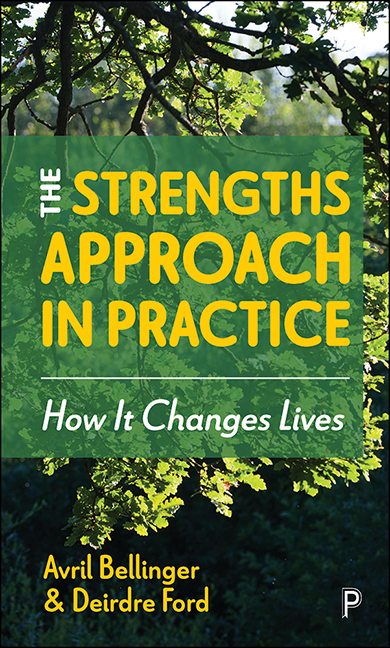Book contents
- Frontmatter
- Dedication
- Contents
- List of figures, tables and boxes
- About the authors
- Acknowledgements
- Preface
- Introduction: The strengths approach in a global emergency
- 1 A strengths approach to human need
- 2 A strengths approach to law and policy
- 3 A strengths approach to organisational development
- 4 A strengths approach to governance and management
- 5 A strengths approach to funding an NGO
- 6 A strengths approach to research
- 7 A strengths approach to student learning
- 8 A strengths approach to growing community
- 9 The strengths approach in practice: how it changes lives
- References
- Index
3 - A strengths approach to organisational development
Published online by Cambridge University Press: 15 September 2022
- Frontmatter
- Dedication
- Contents
- List of figures, tables and boxes
- About the authors
- Acknowledgements
- Preface
- Introduction: The strengths approach in a global emergency
- 1 A strengths approach to human need
- 2 A strengths approach to law and policy
- 3 A strengths approach to organisational development
- 4 A strengths approach to governance and management
- 5 A strengths approach to funding an NGO
- 6 A strengths approach to research
- 7 A strengths approach to student learning
- 8 A strengths approach to growing community
- 9 The strengths approach in practice: how it changes lives
- References
- Index
Summary
Since trust has to be placed without guarantees, it is inevitably sometimes misplaced: others let us down and we let others down. When this happens, trust and relationships based on trust are both damaged. Trust, it is constantly observed, is hard earned and easily dissipated. It is valuable capital and not to be squandered.
O’Neill (2002: 6)How does a strengths approach apply to organisational development? As an alternative paradigm to conventional theorising, this chapter introduces the concept of social innovation defined in Box 3.1. We begin with an account of entrepreneurship – using existing resources in a new way – and record how academic activism led to the creation of an NGO. Charting the development of the latter reveals how frequently people sought to pigeon-hole it within conventional organisational types. The effects of growth on the organisation are revealed and an account is given of how the strengths approach enabled it to mature through a period of financial difficulty. A critique of the neoliberal notion of social enterprise is also offered in this context.
A transferable model of social entrepreneurship derived from our early experiences at START then illustrates the way a strengths approach to organisational development can result in social innovation. Drawing on research using a business administration lens, we consider how social innovation can produce organisations that are suited to their particular locality in size and composition, responsive to national and local agendas, and energising and educative for all concerned. A vital component of the approach is trust.
Entrepreneurship
Box 3.1: Definitions
Entrepreneurship is the activity by a person or persons that identifies existing resources or potential and brings them together in a new way.
Social entrepreneurship is the activity by a person or persons that identifies existing resources or potential and brings them together in a new way with the specific intention of social benefit.
Enterprise is an organisation whose activity is designed to produce profit (sometimes at the expense of both people and planet) as in the activities of large, profit-driven multi-national corporations.
Social enterprise is the organisation or structure resulting from social entrepreneurship which has money at its core. Profits are used to improve social benefits for individual and community wellbeing, exemplified by fair trade companies.
- Type
- Chapter
- Information
- The Strengths Approach in PracticeHow It Changes Lives, pp. 55 - 76Publisher: Bristol University PressPrint publication year: 2022



